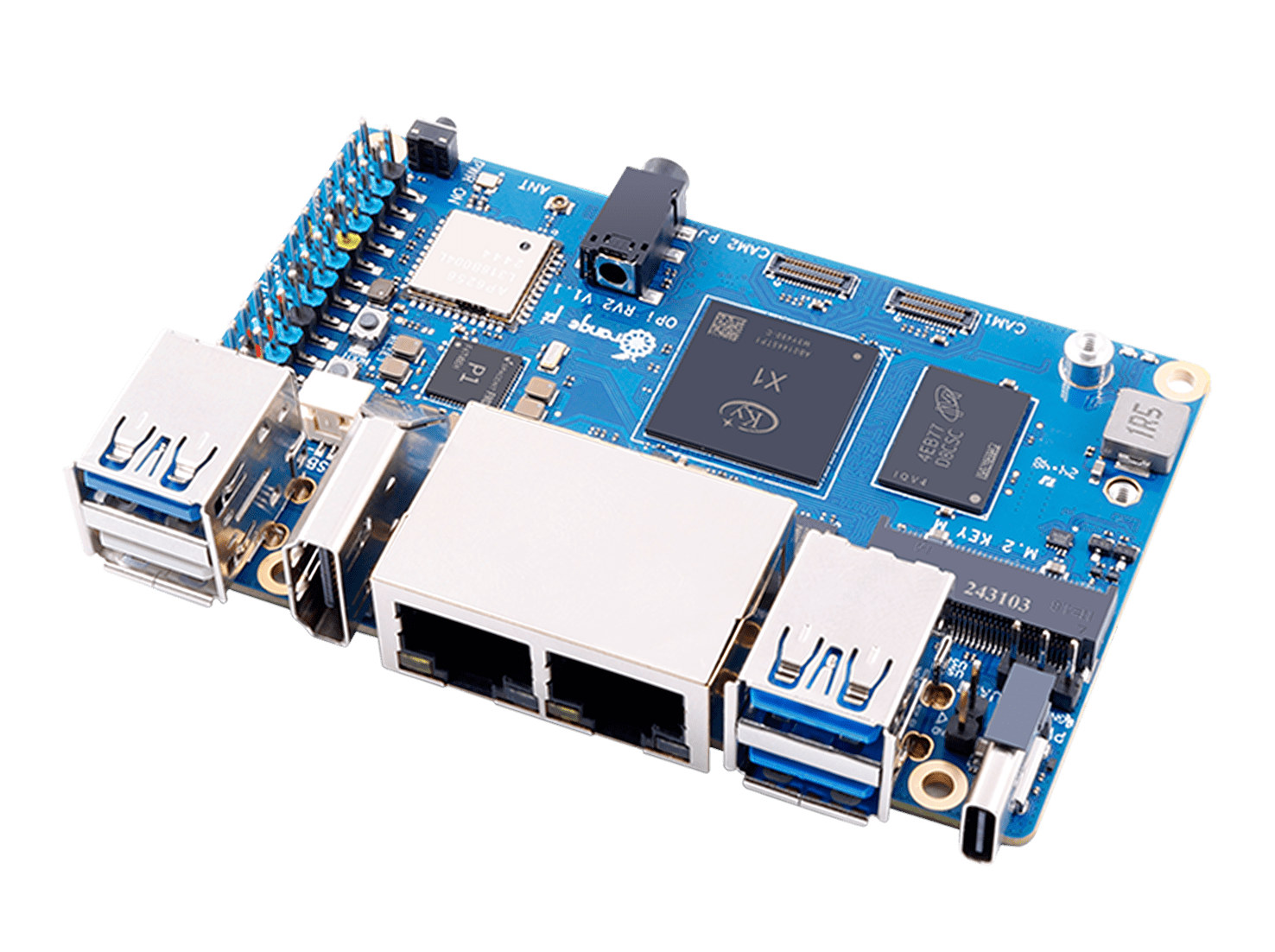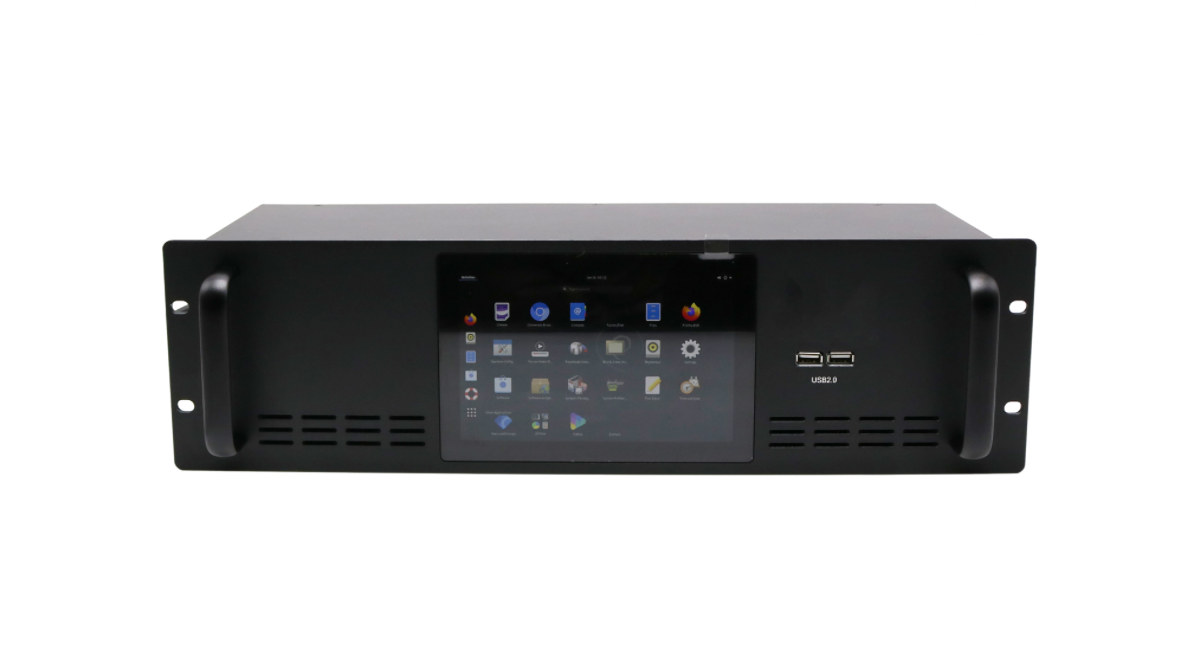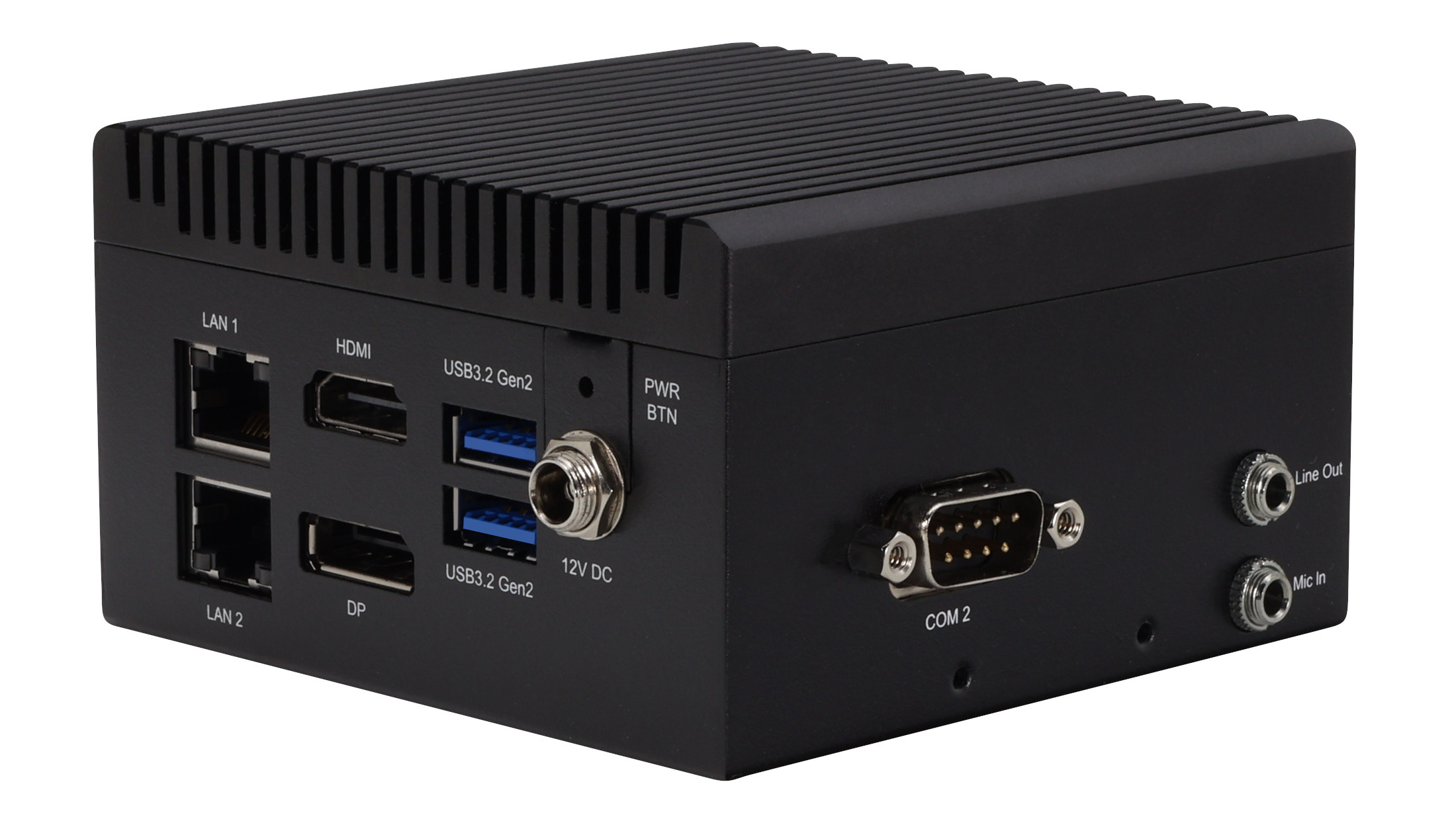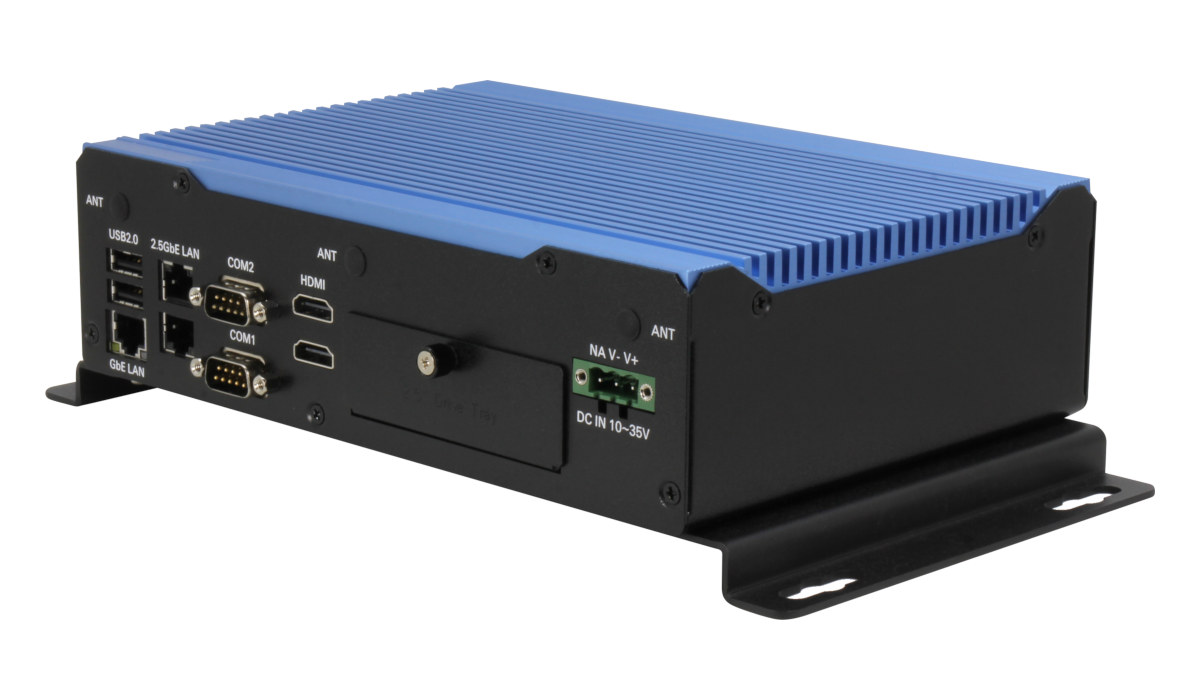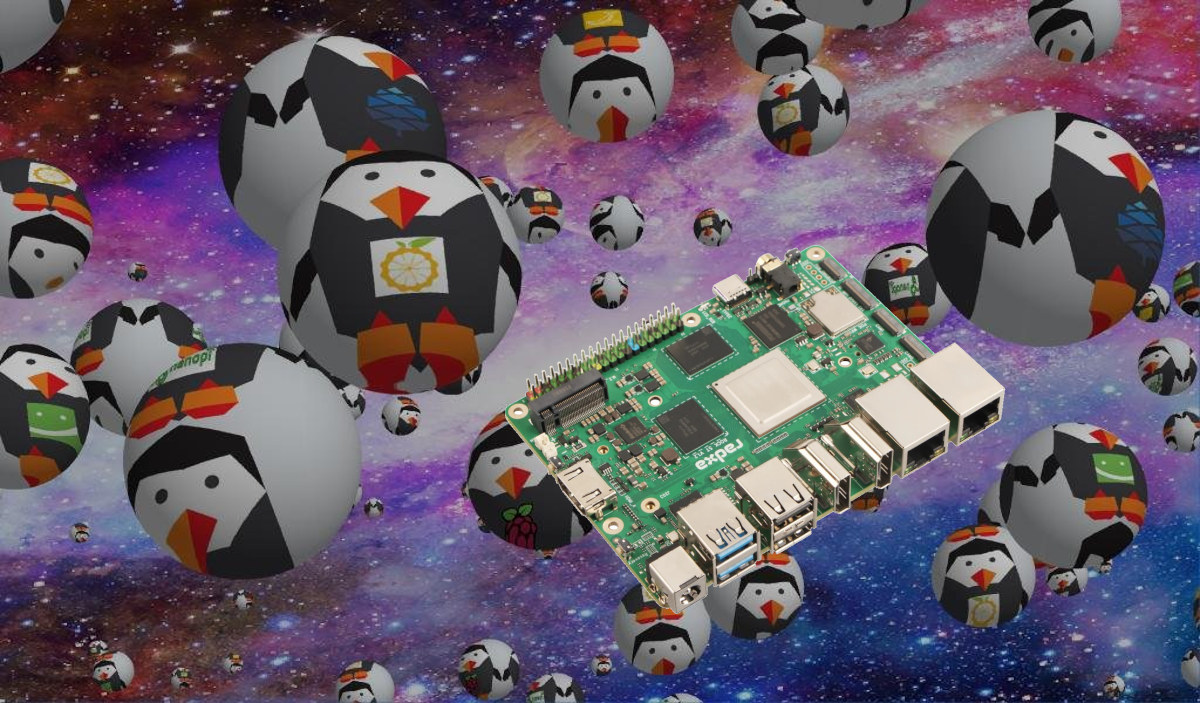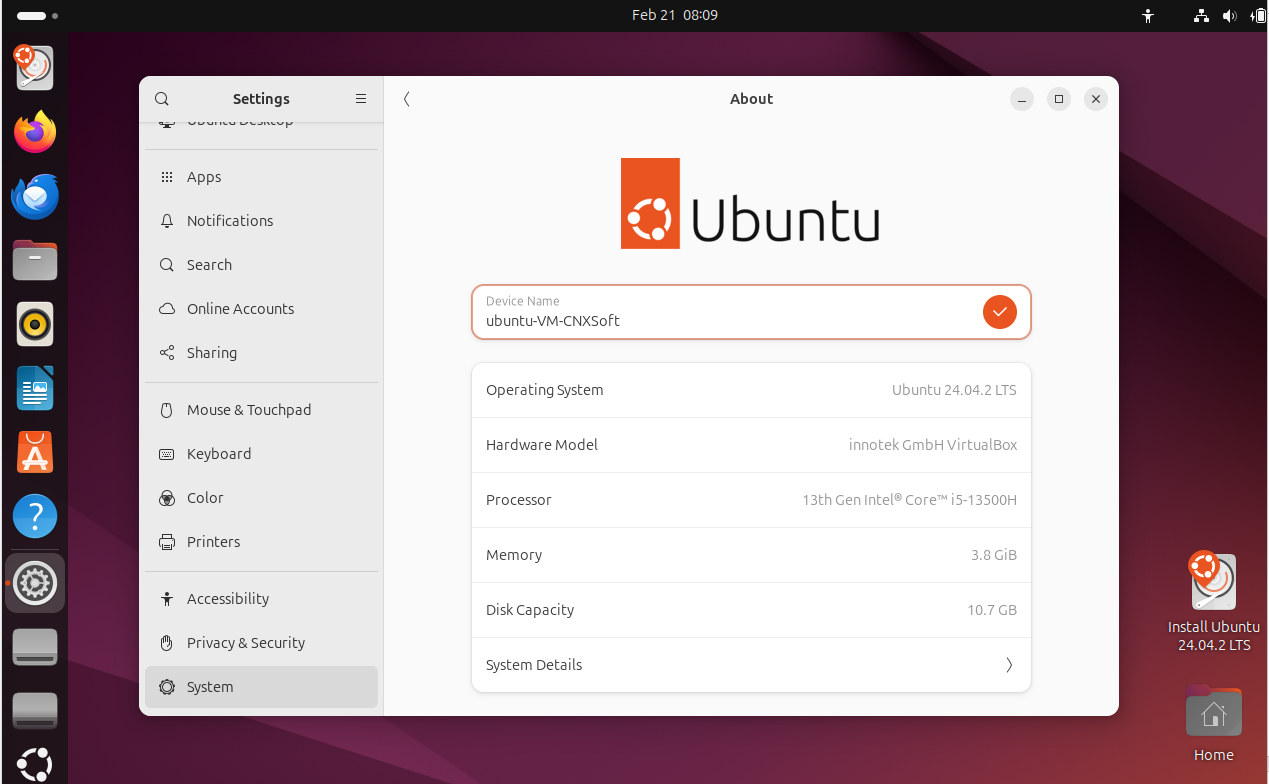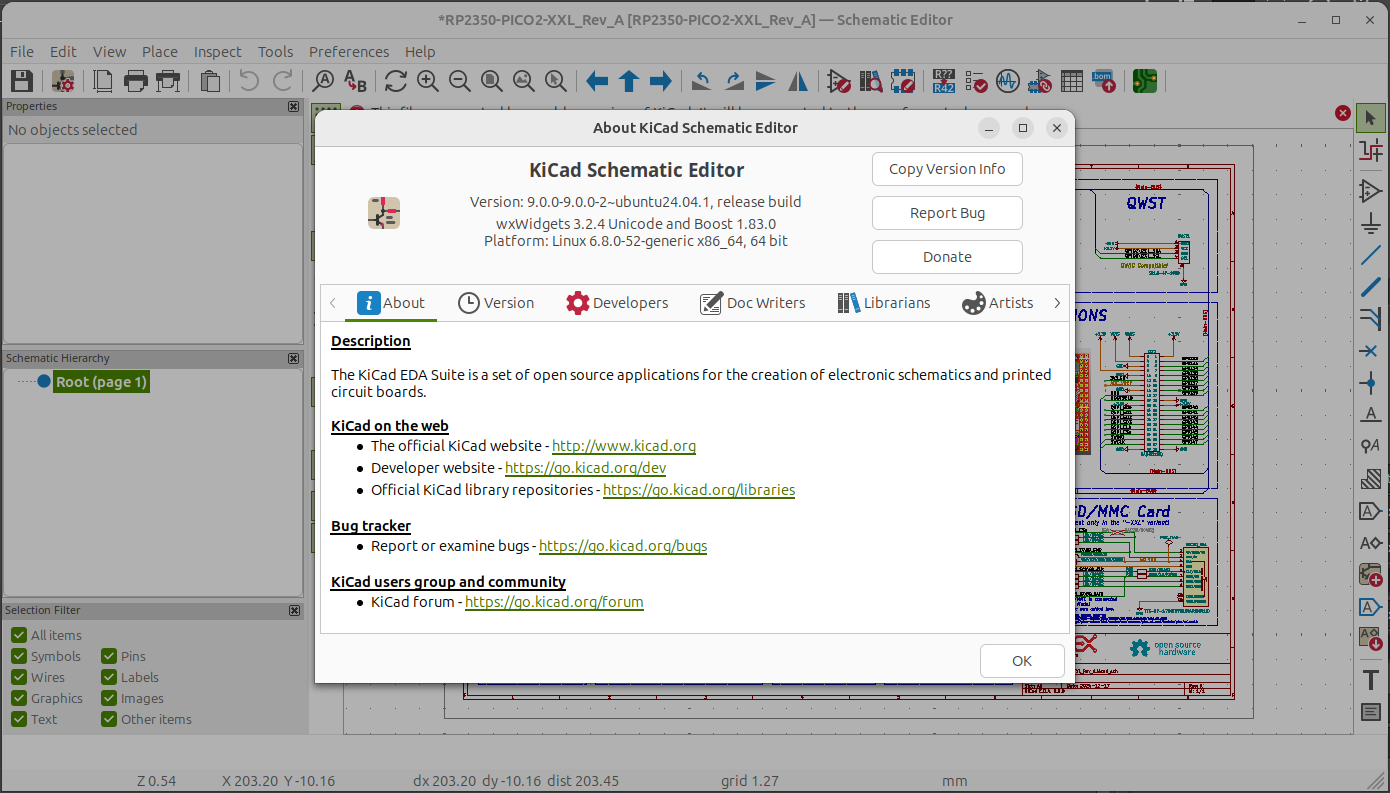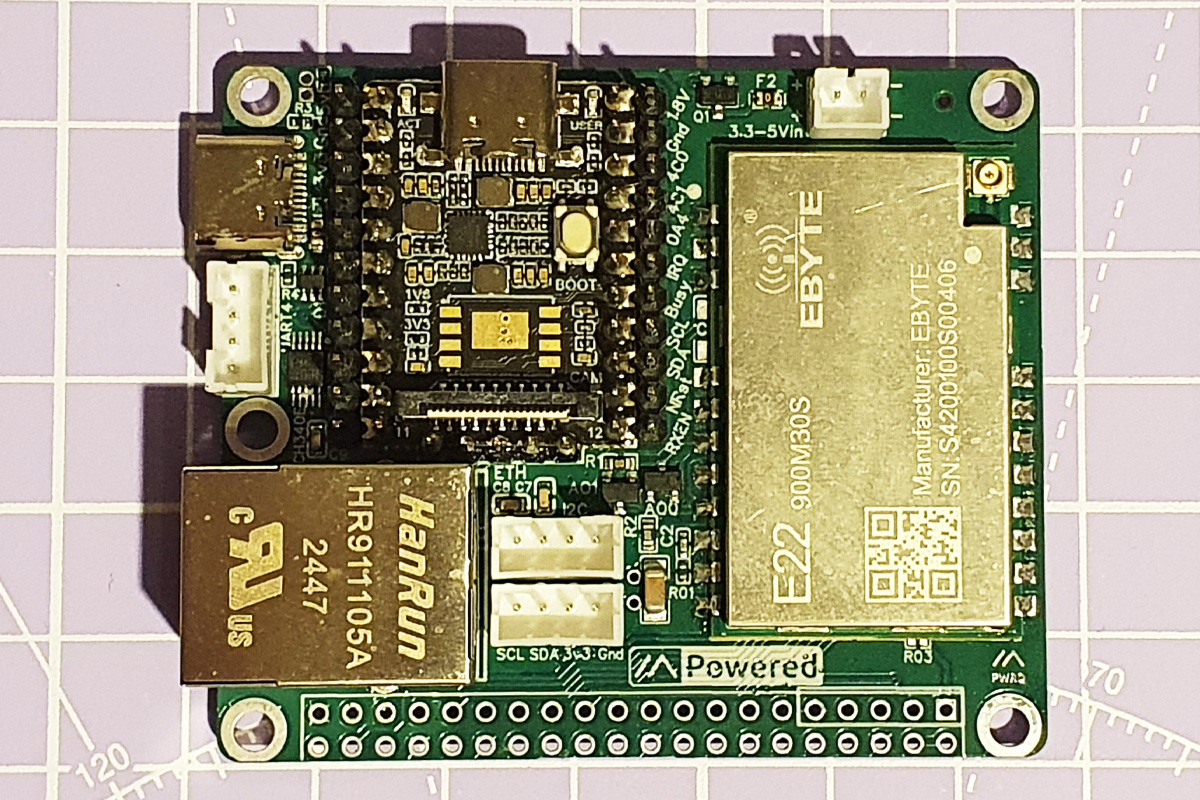While the Orange Pi RV RISC-V SBC introduced at the Orange Pi Developer Conference 2024 last year is yet to be launched (should be up in a few days), the company has just launched the Orange Pi RV2 powered by the Ky X1 octa-core RISC-V SoC with a 2 TOPS AI accelerator, up to 8GB LPDD4X, optional eMMC flash moduyle, two M.2 sockets for storeage, dual gigabit Ethernet, WiFi 5, and more. While RISC-V has made a lot of progress over the years, Linux RISC-V SBCs were often synonymous with relatively expensive hardware for developers, since software is often unsuitable for production, at least for applications using graphics. The Orange Pi RV2 addresses the cost issue since the octa-core RISC-V SBC sells for just $30 to $49.90 depending on the configuration. Orange Pi RV2 specifications: SoC – Ky X1 CPU – 8-core 64-bit RISC-V processor GPU – Not mentioned VPU […]
Rockchip RK3588 4K video encoder features four SDI inputs, four SDI loop outputs
Mekotronics R58-4×4 3U is yet another device based on Rockchip RK3588 from the company, but this product is a 4K video encoder with four SDI inputs, and four SDI loop outputs mirroring the SDI inputs. SDI (Serial Digital Interface) inputs are used for transmitting uncompressed, unencrypted digital video signals and typically found in professional video production and broadcasting environments. The SDI interface can also be found in security cameras like the MOKOSE SHD50-2.8-12MM and I can also see it used in cameras designed for live streaming on YouTube, or other services. The main advantages of SDI over interfaces like USB, HDMI, or Ethernet, are that it can use longer cables up to 300 meters, offers better signal integrity, and has near zero latency. Compatibility for professional camera equipment is another advantage. Let’s look at the Mekotronics R58-4×4 3U specifications: SoC – Rockchip RK3588 octa-core processor with CPU – 4x CortexA76 […]
UP Squared 7100 Edge fanless mini PC features Intel Processor N97 or N100 CPU for industrial automation
AEEON UP Squared 7100 Edge is a fanless industrial mini PC for edge applications powered by an Intel Processor N97 or Processor N100 CPU and based on the UP Squared 7100 SBC. The computer comes with up to 16GB LPDDR5, 128GB eMMC flash, M.2 sockets for storage and wireless expansion, HDMI and DisplayPort video outputs, two gigabit Ethernet ports, three USB 3.2 ports, two COM ports (RS232/RS485), and Line Out and Mic In audio jacks. The mini PC takes 12V DC up to 5A via a screwable DC lock and can operate in the 0 to 60°C temperature range. UP Squared 7100 Edge mini PC specifications: Alder Lake-N SoC (one or the other) Intel Processor N97 quad-core processor up to 3.6 GHz with 6MB cache, 24EU Intel UHD Graphics Gen 12 @ 1.2 GHz; TDP: 12W Intel Processor N100 quad-core processor up to 3.4 GHz with 6MB cache, 24EU […]
AAEON BOXER-6647-MTH Meteor Lake embedded Box PC features screwless SATA and M.2 M-key trays
AAEON BOXER-6647-MTH is an embedded Box PC powered by Intel Core Ultra 7 155H or Core Ultra 5 125H Meteor Lake processor, and mainly designed for advanced industrial robotics solutions such as AGV (Automated Guided Vehicle) and AMR (Autonomous Mobile Robot). The rugged computer supports up to 64GB DDR5 RAM, is equipped with screwless external SATA and M.2 M-Key trays, offers 2.5GbE networking, four USB 3.2 interfaces, RS-232/422/485 & DIO for cameras, sensors (LIDAR, IMUs, etc…), and actuators for robotics, as well as wireless and cellular expansion via additional M.2 sockets. AAEON BOXER-6647-MTH specifications: Meteor Lake-H SoC (one or the other) Intel Core Ultra 5 125H 14-core (4P+8E+2LPE) processor @ 1.2 / 4.9 GHz with 18MB cache, Intel 7Xe LPG graphics @ 2.2 GHz, Intel AI Boost NPU; TDP: 28W Intel Core Ultra 7 155H 16-core (6P+8E+2LPE) processor @ 1.4 / 4.8 GHz with 24MB cache, Intel 8Xe LPG graphics […]
Armbian v25.2 and DietPi v9.11 released with updated Ubuntu and Debian-based Linux images for single board computers
Vendor-provided Linux images for single board computers are not always working optimally, so this post is a regular reminder that users may want to check out Armbian and DietPi projects mostly supported by the community but also backed by some of the vendors who offload some (repackaging) software work to them. Armbian and DietPi are separate projects, but this month, Armbian v25.2 and DietPi v9.11 were almost released simultaneously. I don’t report on each release (should I?), but they release an update every few months. The last time we had a look at both projects was in September 2024 for the releases of DietPi 9.7 and Armbian 24.8. Let’s see what the new releases have to bring. Armbian v25.2 Main changes: New Boards – Rock 2A and 2F, NanoPi R3S, Retroid Pocket RP5, RPMini, Rock 5T, GenBook, MKS-PI, SKIPR, Armsom CM5, NextThing C.H.I.P, Magicsee C400 Plus Rockchip 3588 Improvements – […]
Ubuntu 24.04.2 released with Linux 6.11 kernel and hardware enablement stack
Ubuntu 24.04.2 has just been released with Linux 6.11 kernel and hardware enablement (HWE) stack. I would typically not care too much about a point release, but our reviews of mini PCs have shown Ubuntu 24.04 with Linux 6.8 was not always well supported with recent mini PC, mostly due to issues with WiFi or Bluetooth, but sometimes it’s even worse. The most common problem I encountered was that MediaTek MT7922-based WiFi 6 and Bluetooth 5.3 module would not support Bluetooth on Ubuntu 24.04 unless we updated the Linux kernel to version 6.10 or newer. Mini PCs with recent processors like the Khadas Mind 2 AI Maker Kit based on Intel Core Ultra 7 258V AI SoC required even more tweaks for HDMI audio, GPU, and WiFi + Bluetooth which is why I tested it with Ubuntu 24.10 instead. Ubuntu 24.04.2 should solve all of those issues. The announcement explains […]
KiCad 9 released with support for embedded files, tables in schematics, custom ERC/DRC errors, mouse scroll wheel actions, and more
KiCad 9 open-source EDA software has just been released with a range of new features such as support for embedded files (fonts, 3D files, PDF), tables in schematics, custom ERC/DRC errors, warnings, and exclusion comments, mouse scroll wheel actions, multiple track drag, and much more. The latest KiCad 9.0.0 release includes 4,870 unique commits from hundreds of developers and translators, and the KiCad library has further gained 1500 new symbols, 750 new footprints, and 132 new 3D models. There are way too many changes to list them all here, so I’ll mention some highlights here: Jobsets (predefined output jobs) – Feature that provides predefined sets of ‘jobs’— plotting, exporting, and running DRC—on schematics and PCBs. Independent jobset files are reusable as users may want to create output pipelines that they can apply across their projects for consistency. Jobsets can be run from the command line or the KiCad GUI. Embedded […]
Femtofox Pro v1 LoRa and Meshtastic development board runs Linux-based Foxbuntu OS on Rockchip RV1103 SoC
The Femtofox Pro v1 kit is a compact, low-power LoRa and Meshtastic development board running Linux specially designed for Meshtastic networks. Built around the Luckfox Pico Mini (Rockchip RV1103) SBC, this compact development platform supports USB host/device functionality, Ethernet, WiFi over USB, GPIO interfaces, I2C, UART, and a real-time clock (RTC). The most unique feature of this board is that it operates at very low power (0.27-0.4W), making it ideal for solar-powered applications. Additionally, Femtofox supports native Meshtastic client control, USB mass storage, and network reconfiguration via a USB flash drive. It also includes user-configurable buttons for WiFi toggling and system reboot, enhancing its usability. These features make Femtofox particularly useful for applications such as emergency response and off-grid messaging. Femtofox Pro v1 kit specifications Mainboard – Luckfox Pico Mini A SoC – Rockchip RV1103 SoC CPU – Arm Cortex-A7 processor @ 1.2GHz + RISC-V core Memory – 64MB DDR2 […]


